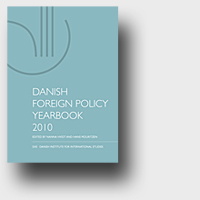
Remember the discussions as to what happened in Copenhagen, and this in anticipation of Cancun we posed ourselves the question what can be done to learn from recent experiences. This 25 page article is well written and formulated in such a way that the reporting is not so much a political positioning but rather a way to make space for a sober analysis.
It is an analysis of what went wrong in terms of Danish politics which did not heed the difference between EU specific types of negotiations and more complicated rules and procedures when operating at UN level with multiple actors involved. A key term to explain the failure is that the Danish government did not so much as facilitate dialogues between the different actors but tried to lead in the wish to gain in prestige. It was as well a failure of many components including what can be deemed prevailing conflicts between the rich and poor countries with both sides having often no good faith the other side will really uphold declared commitments. Above all the article outlines how complex a process is negotiation if there is the intention to arrive at a legally binding treaty. It shows how agendas may be co-opted by pro business think tanks who can network quite differently through such yearly events as the Economic Forum in Davos but still it takes a political trust to facilitate the coming together of all stake holders. Clearly we would need in a second step reconsider what artistic and other symbolic actions and manifestations can influence the negotiating process, if at all? So please take a look at this article and see if you can gain as much as I have out of reading it thoroughly.
“As COP16 kicks off, take a look at last years dramatic summit in icecold Copenhagen. What went wrong? Who were to blame? What was at stake? And most importantly: What can we learn? Read a 25-page article here, based on interviews with a wide range of stakeholders, negotiatiors, ministers etc. It was peer-reviwed and published in the respected Danish Foreing Policy Yearbook 2010”
www.kampenomklimaet.blogspot.com
Warmest regards from Athens,
by Hatto Fischer
